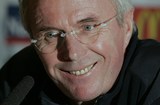Be careful when walking into someone's bathroom!

This site is a combination of family events and other things that catch my interest. Please feel free to leave a friendly comment, by clicking on the 'comments' link found at the bottom of each article. Thank you and enjoy!
 Jack, a 15-pound orange-and-white cat, cat sits under a treed black bear in a backyard in West Milford, N.J., Sunday, June 4, 2006.
Jack, a 15-pound orange-and-white cat, cat sits under a treed black bear in a backyard in West Milford, N.J., Sunday, June 4, 2006. 
